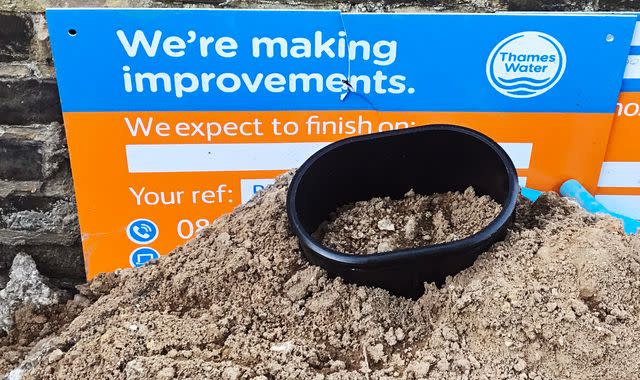Thames Water pins survival hopes on regulator Ofwat's shoulders

Thames Water is drowning in debt while its customers frequently swim in effluent, a toxic combination for a company seeking to avoid becoming the greatest failure of privatisation.
Thames admitted today it is running out of money as well as time, with enough cash to see it through to next May unless it can attract fresh equity, and for that it needs a favourable deal from water regulator Ofwat.
On Thursday, Ofwat will publish its verdict on Thames' business plan for the next five years, as well as every other water company in England and Wales. In its so-called "draft determination", the regulator will sign off on company spending plans and customer bills ahead of a final determination at the end of the year.
It's a fundamental moment for all our regional monopoly suppliers but none more so than Thames, for whom a bad deal could be terminal.
Money latest:
Cheapest supermarket rankings now include loyalty prices
Earlier this year existing shareholders pulled the plug on a £500m equity injection, and cancelled a commitment to a further £3bn over the next five years, leaving a vacuum in the finances.
The latest accounts tell us the debt pile got bigger in the last year too, with debt at company level rising £1.3bn to £15.2bn, with another £4bn or so in parent companies beyond the reach of the regulator.
The company's debt has also been downgraded by ratings agencies, with any further deterioration potentially triggering a default on its group financing arrangements.
What Thames needs from Ofwat is an agreement that allows it to increase customer bills sufficiently to make the company attractive to new investors. It has asked Ofwat to allow it to raise prices by 44% and support £21bn of spending over the next five years. It also wants leniency when it comes to fines for pollution and other licence breaches.
In the words of chief executive Chris Weston it needs to be "deliverable, financeable and investable, as well as affordable for our customers".
The dilemma for the regulator is that for the privatised model to have any merit, shareholders and investors have to receive a return as well as bearing the cost of mismanagement and poor performance, but punishing Thames might prove self-defeating.
If the company is not able to raise enough revenue to give investors a return, the alternative is a special administration regime that could land the taxpayer with responsibility for a loss-making utility.
Thames has also consistently been among the worst performing water companies, with repeated fines for pollution incidents - up again the last year - as well as overseeing rising customer complaints and persistent issues with leakage.
Pollution incidents rose last year, driven Thames said by a 40% increase in average rainfall, and the number of storm overflows, which can send sewage into waterways, doubled to more than 16,000.
Sources suggest Thames is unlikely to get any special treatment, as any deal would have to be offered to the wider industry.
Read more from Sky News:
Crisis-hit Thames Water reveals when it may run out of cash
Card spending falls for 'first time in three years'
Mr Weston conceded the company's future is in the balance, and tellingly admitted it has been profligate and poorly run in the past. "We need to learn to live within our means," he said.
He also made the case that Thames's challenges are more acute than its industry peers because of the challenge of operating in London, a congested city with 150-year old infrastructure designed for a population a fraction of its current size.
He is not yet giving up on turning the company round, though the final verdict will rest with the markets.
"Not going to speculate on what may or may not happen, we look at all sorts of contingency plans, but in March when I spoke to media I said it [administration] is a possibility, but there's a lot more water to go under the bridge and a lot more that we need to do before that point in time," he said.


